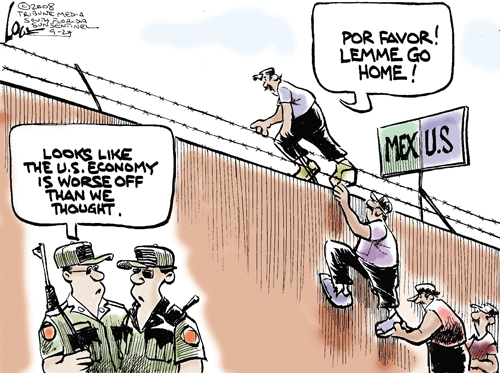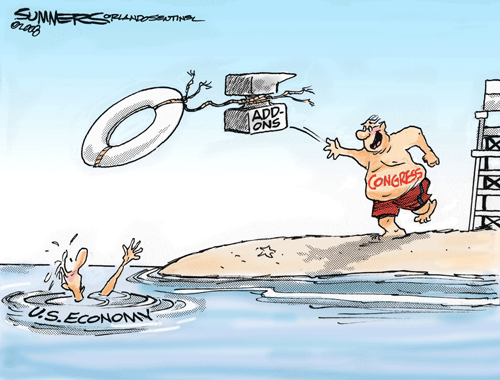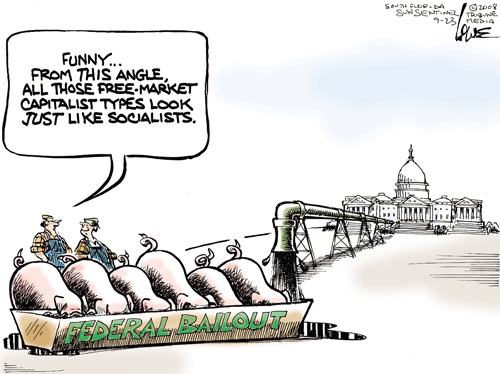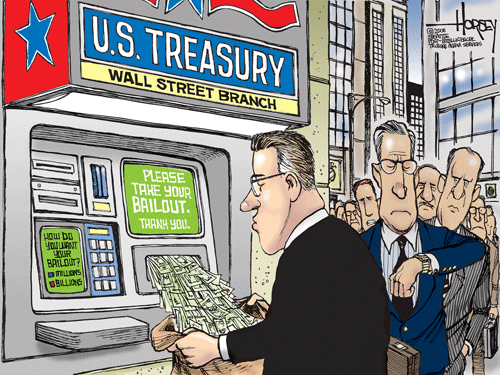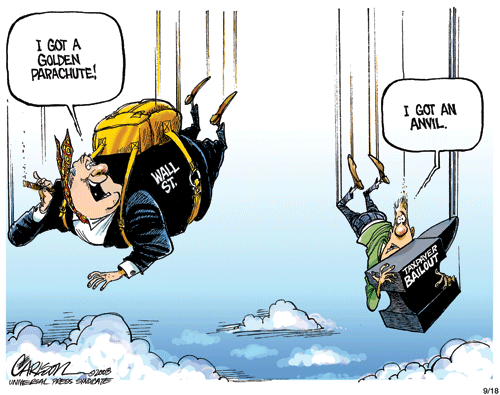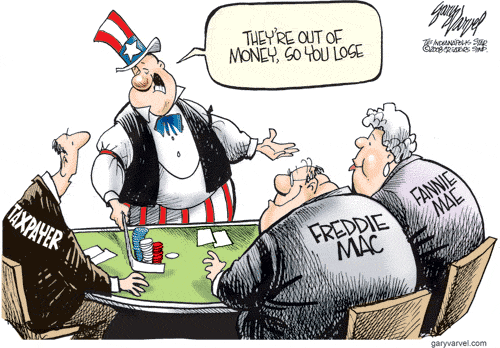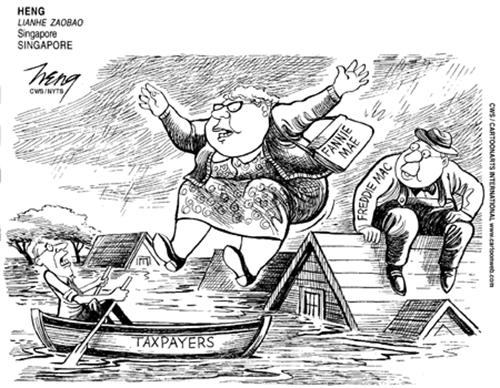|
earlier posts Via Radar-Online:
Madonna's music manager brother Chris Ciccone has blasted Lady Gaga's sound-alike new single Born This Way.
He told RadarOnline.com: "All I can say is 'What the F**K!...It sounds just like Express Yourself - I can't believe it to tell you the truth."
Read the full story here:
http://www.radaronline.com/exclusives/2011/02/exclusive-interview-madonnas-brother-blasts-lady-gaga-sound-alike-new-song
You can compare samples from the two songs here:
http://media.ccomrcdn.com/media/station_content/163/GAGA_MADONNA_MASHUP_2-11-11_1297447093_8958.mp3
After hearing the comparison myself, I can draw a personal conclusion that Lady Gaga was heavily influenced by Madonna and is far less talented and original than people give her credit for.
But could she be liable for copyright infringement? In a sane world, the answer should be "no", since the works can still be distinguished. Gaga clearly took the broad structure of Madonna's song (the "spine" of the melody, if you will), but then put a personal gloss over it to make it her own, new work. The fact that it clearly grew out of Madonna's previous creation should not make it an actual "copy" in the eyes of the law.
However, this is not a sane world as far as the realm of copyright law is concerned. New musical works can still be considered "copies" or unlawful "derivative works" if they even build upon more abstract aesthetic elements such as melodic motifs and musical timings in such a way that a listener can recognize it as being influenced by a previous work.
A famous example in legal circles is when George Harrison was found liable for copyright infringement when his song "My Sweet Lord" was deemed too similar to the Chiffons' hit "He's So Fine".
Read the court ruling and hear samples from both works here:
http://cip.law.ucla.edu/cases/case_brightharrisongs.html
If Harrison can be found liable, it isn't too much of a stretch to suggest that Gaga could be liable for infringement as well if Madonna decided to go after her. One could always argue that Gaga's song has more original production "frills" than the similarities found between Harrison and the Chiffons' song. But you would be splitting some awfully thin hairs at that point, and end up turning what should be objective law into a legal decree based on personal aesthetic judgments. In my book, that's a sad criteria to enforce the law with. But that is what the current copyright regime has wrought.
It should be enough to brand Lady Gaga as a coat-tailing poseur. There is no need for a legal system which could dole out punishment to her for "copying" in this instance.
[Posted at 02/15/2011 01:21 AM by Justin Levine on Ease of Imitation  comments(0)] comments(0)] Via my father Robert Levine, a New York Times article bemoaning the negative effect of investors on innovation. Funny thing is, it's mostly about how patents discourage research - but never a thought to patent reform. [Posted at 06/01/2009 06:37 AM by David K. Levine on Ease of Imitation  comments(17)] comments(17)] [Posted at 12/01/2008 07:44 AM by John Bennett on Ease of Imitation  comments(0)] comments(0)] Financial Problems in Japan!
Following the problems in the financial sector in the US, uncertainty has now hit Japan. In the last 7 days Origami Bank has folded, Sumo Bank has gone belly up and Bonsai Bank announced plans to cut some of its branches.
Yesterday, it was announced that Karaoke Bank is up for sale and will likely go for a song, while today shares in Kamikaze Bank were suspended after they nose-dived.
While Samurai Bank is soldiering on following sharp cutbacks, Ninja Bank is reported to have taken a hit, but they remain in the black.
Furthermore, 500 staff at Karate Bank got the chop and analysts report that there is something fishy going on at Sushi Bank where it is feared that staff may get a raw deal. [Posted at 11/28/2008 01:27 PM by John Bennett on Ease of Imitation  comments(0)] comments(0)] One study found that users of pirated software sufficiently influenced by word-of-mouth communication eighty percent of the software's prospects to buy the legal product and another described several scenarios in which piracy can help increase the sales of legal products. The pirated product functions as a free sample that the innovator does not have to fund.
The rest of Jerry Kirkpatrick's article, "The Market Function of Piracy," is here at the Ludwig von Mises Institute. [Posted at 05/21/2007 07:32 AM by Sheldon Richman on Ease of Imitation  comments(0)] comments(0)] If you want to amuse yourself, go check out patent 6,025,810 [Posted at 03/07/2007 02:35 PM by David K. Levine on Ease of Imitation  comments(1)] comments(1)] Over on Freedom to Tinker there is a nice essay about an important discovery in the online game SecondLife. To briefly summarize: people can create and sell objects for "Linden Dollars" which can be traded in the real world for US Dollars. Someone has now built a copybot which can make exact duplicates of any object. It seems the "perfect storm" for the pro-IP crowd: surely the economy will collapse over night. (It does matter quite a bit whether the copybot can operate without or without the permission of the current owner of the object - it isn't clear to me from the essay which way it works.) If you want to know what will happen next, go read the 1958 Ralph Williams science fiction short story "Business As Usual During Alterations." [Posted at 11/18/2006 06:40 AM by David K. Levine on Ease of Imitation  comments(4)] comments(4)] Techdirt has an interesting discussion of patent law, suggesting that the test for whether an innovation is non-obvious needs to be clarified. So far, as a practical matter the only test is whether there is prior art and that is often hard to show, even when the invention seems all too obvious ( link here).
In other words, the constitutional test for granting a patent--that the invention be new and non-obvious--is faulty in practice.
[Posted at 11/15/2006 06:59 PM by John Bennett on Ease of Imitation  comments(3)] comments(3)] A lone blogger Peter [last name unknown to me] has taken on the Amazon one-click patent. It is expensive to file patent appeals - he raised the money by asking people to vote against the patent with their dollars. He successfully raised the filing fee and has filed the appeal. He identified significant prior art that should - in a just world - invalidate the patent. His beta test of a market based procedure for getting rid of ridiculous patents continues. Let us wish him luck and give him our support. [Posted at 05/19/2006 02:32 PM by David K. Levine on Ease of Imitation  comments(0)] comments(0)] An interesting post by Tim Wu at Lessig.
A relatively little-known fact outside of copyright practice is that movie studios regularly purchase the film and television rights to newspaper stories. Yes, newspaper stories, which by their nature, report on facts or ideas, two things the copyright law does not protect. So what are studios buying?
There is a widespread myth that the government monopoly provided by copyright is necessary to sell something: Wu speculates that the studio is worried about being sued. Why don't they pay me for the movie rights then? I have as much chance of suing successfully as the newspaper does. Michele and I have done our best to point out that as a matter of theory ideas are always scarce and command a positive price. Yet the fact that it is true in practice continues to mystify people. [Posted at 05/04/2006 09:10 AM by David K. Levine on Ease of Imitation  comments(0)] comments(0)] earlier posts
|



